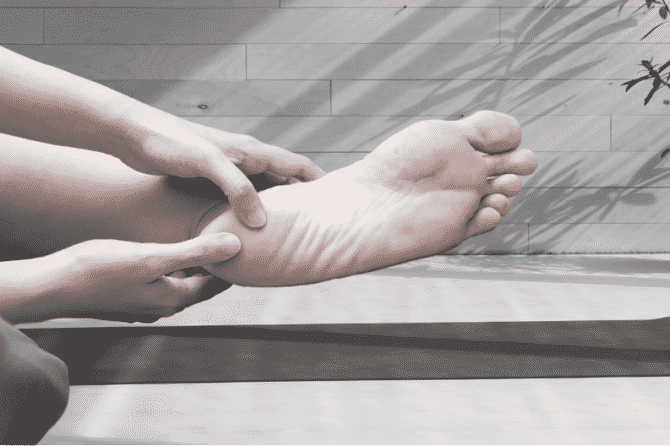
Plantar fasciitis is a common foot disorder causing extreme pain in the heel. Approximately 10% -15% of adults experience heel pain at some point in their life. The common sufferers are runners, people who have to stand for a prolonged period, and people who are overweight. Those who participate in Zumba, ballet, or other aerobic dance are also common patients. Improper footwear can lead to plantar fasciitis, too.
Although it can affect any age group, the risk for getting plantar fasciitis is highest in the age group of 40-60 years. It affects men and women equally.
Local injections of platelet-rich plasma (PRP) are emerging as therapy for helping plantar fasciitis.
What is PRP?
PRP is a concentrated solution of platelets and plasma containing growth factors. Prepared from the patient’s own blood, it, therefore, is free from the risk of new blood-borne disease transmission. This solution has been used widely for newly diagnosed or recalcitrant bone or ligament pathologies like plantar fasciitis, osteoarthritis, muscle strain, tendon injuries, and many more.
Can PRP therapy help my plantar fasciitis?
Plantar fasciitis is naturally a degenerative tissue condition rather than a true inflammatory pathology. A small tear in the fascia can occur due to prolonged standing and the tear cannot heal, being the fascial tissue.
The platelets of the blood cannot reach the site due to the hypervascularity of the fascia. Local injection of PRP solution delivers the growth factors necessary to initiate the healing response of the fascia and reverse the degenerative process. Due to these benefits of PRP solution, PRP therapy is widely known as regenerative therapy too.
Other treatment modalities
Plantar fasciitis has been treated wit, various medicines, non-drug methods, and sometimes surgery is the recommended course of action. Medicines like nonsteroidal anti-inflammatory drugs (NSAIDs), steroid injections, and autologous blood injections are used frequently in combination with measures like ice packs, shoe inserts, electro neuromuscular therapy, and physiotherapy. These measures have been found to have unpredictable outcomes.
Is steroid injection better?
Steroid injection is associated with risks like plantar fascia rupture and fat pad atrophy. Also, steroid injections are often not successful after a single injection due to their short term action. Multiple injections may be required and can significantly increase the risk of plantar fascia rupture, fat pad atrophy, abscesses, osteomyelitis, etc.
What’s my next step?
If you have plantar fasciitis or think you may have it, then the first step is to contact the front desk at OrthoNOW at the Doral Orthopedic Center by calling 305-537-7272. A patient care representative can answer all your questions about getting seen by a specialist and making sure your concerns are heard. You can also fill out a form and request a call back by filling out the Make Appointment form. https://doraldoc.com/make-appointment/ OrthoNOW keeps long hours and can accommodate you quickly, including via telemedicine if that’s preferred.
Call DoralDOC at (305) 537-7272 to learn more or make an appointment today!
Leave a reply


It’s great to learn that you can use a PRP injection to treat a variety of health conditions, such as muscle strains and plantar fasciitis. My boss is a known runner who likes to run every morning, but recently he’s suffering from heel pain for some reason. I’ll share this with him so he’d consider taking this for his foot.
Replybest seo backlink service
yyrsuzezd dpfcm wwxpicx wvsk aiyculkvlwkdajr
Reply… [Trackback]
[…] Find More Information here on that Topic: doraldoc.com/prp-for-plantar-fasciitis/ […]
Reply… [Trackback]
[…] Find More Information here on that Topic: doraldoc.com/prp-for-plantar-fasciitis/ […]
Reply… [Trackback]
[…] Find More here on that Topic: doraldoc.com/prp-for-plantar-fasciitis/ […]
Reply